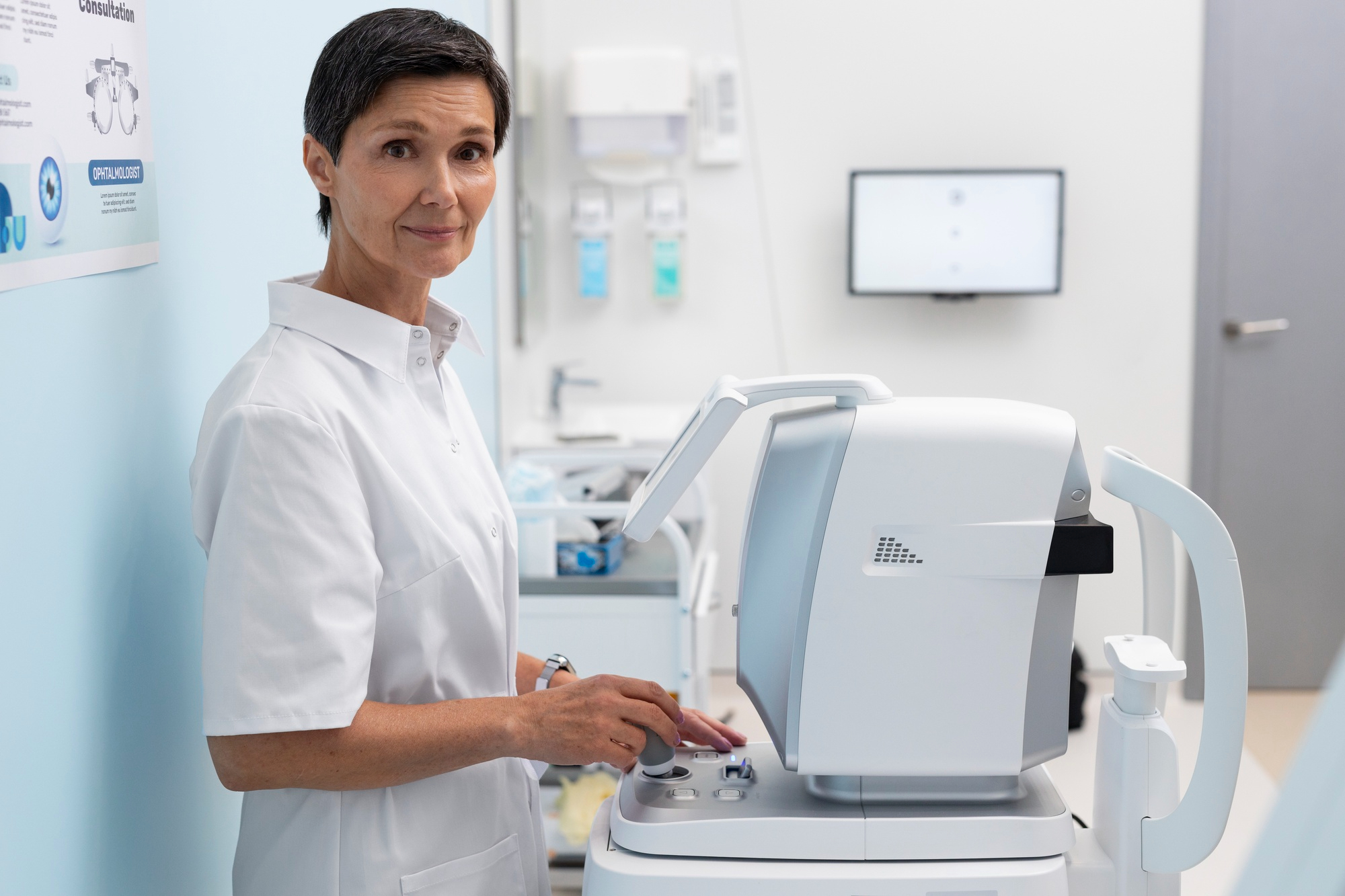
Cataract surgery consultations are a crucial step in guiding patients toward better vision. However, many ophthalmology practices face challenges with long consultation times, patient indecision, and repeated questions—all of which slow down the process and reduce efficiency.
One of the biggest contributors to these inefficiencies is a lack of patient education before the consultation. Patients often arrive unprepared, unfamiliar with their options, and hesitant to commit to surgery—especially when premium intraocular lenses (IOLs) are discussed.
By incorporating pre-education strategies, ophthalmologists can streamline their consultations, reduce redundant explanations, and improve patient decision-making.
Why Cataract Surgery Consultations Are Often Inefficient
1. Patients Are Unfamiliar with Cataract Surgery Basics
Many patients arrive at their consultation with little to no understanding of cataracts, the surgical procedure, or the recovery process. This requires the doctor to spend valuable time explaining basic concepts before diving into treatment recommendations.
2. Premium IOL Discussions Take Longer Than Expected
When patients first hear about premium IOLs, they often need extra time to process the information. They may be hesitant about the cost, uncertain about the benefits, or unsure whether they truly need an advanced lens. These discussions can extend consultation times significantly.
3. Patients Struggle with Decision-Making
For many, choosing between standard and premium IOLs is overwhelming. Without prior education, patients may feel pressured to make a quick decision—leading them to either opt for the default (standard lenses) or request more time to think, delaying their treatment.
4. Redundant Questions Slow Down the Consultation
Without pre-education, patients often ask the same questions repeatedly:
- “Will the surgery hurt?”
- “How long will it take to recover?”
- “Do I really need a premium IOL?”
While answering patient questions is essential, covering the same topics multiple times reduces the number of consultations a practice can handle per day.
How Pre-Education Improves Cataract Surgery Consultation Efficiency
1. Patients Arrive Informed and Ready for Discussion
When patients receive educational materials before their consultation, they walk into the appointment with a foundational understanding of:
✅ How cataract surgery works
✅ The differences between standard and premium IOLs
✅ What to expect before, during, and after the procedure
This eliminates the need for lengthy explanations, allowing doctors to focus on patient-specific concerns rather than covering general information.
2. Premium IOL Conversations Become More Productive
Instead of introducing premium IOLs for the first time during the consultation, pre-education allows patients to learn about these lenses in advance. Patients can review information at their own pace, consider how premium lenses fit their lifestyle, and even discuss options with family members before their appointment.
This leads to:
✅ More patients open to premium IOLs
✅ Faster decision-making
✅ Higher conversion rates from standard to premium lenses
3. Consultation Times Are Significantly Reduced
By addressing common patient concerns before they even step into the office, doctors can cut consultation times while maintaining a high standard of care. Instead of spending time educating patients from scratch, doctors can focus on finalizing treatment plans and answering any remaining questions.
4. Patients Feel More Confident in Their Decisions
A well-educated patient is a confident patient. When patients understand their options ahead of time, they feel empowered to make informed decisions. This results in fewer last-minute cancellations, rescheduled consultations, or requests for more time to decide.
The Bottom Line: Faster, More Effective Consultations
Ophthalmology practices that integrate pre-education strategies report:
✅ Shorter consultation times
✅ Increased premium IOL adoption rates
✅ Less patient hesitation and indecision
✅ A smoother, more efficient workflow for doctors and staff
By educating patients before their appointment, practices can transform their cataract surgery consultations—ensuring a more efficient, productive, and patient-friendly experience.
